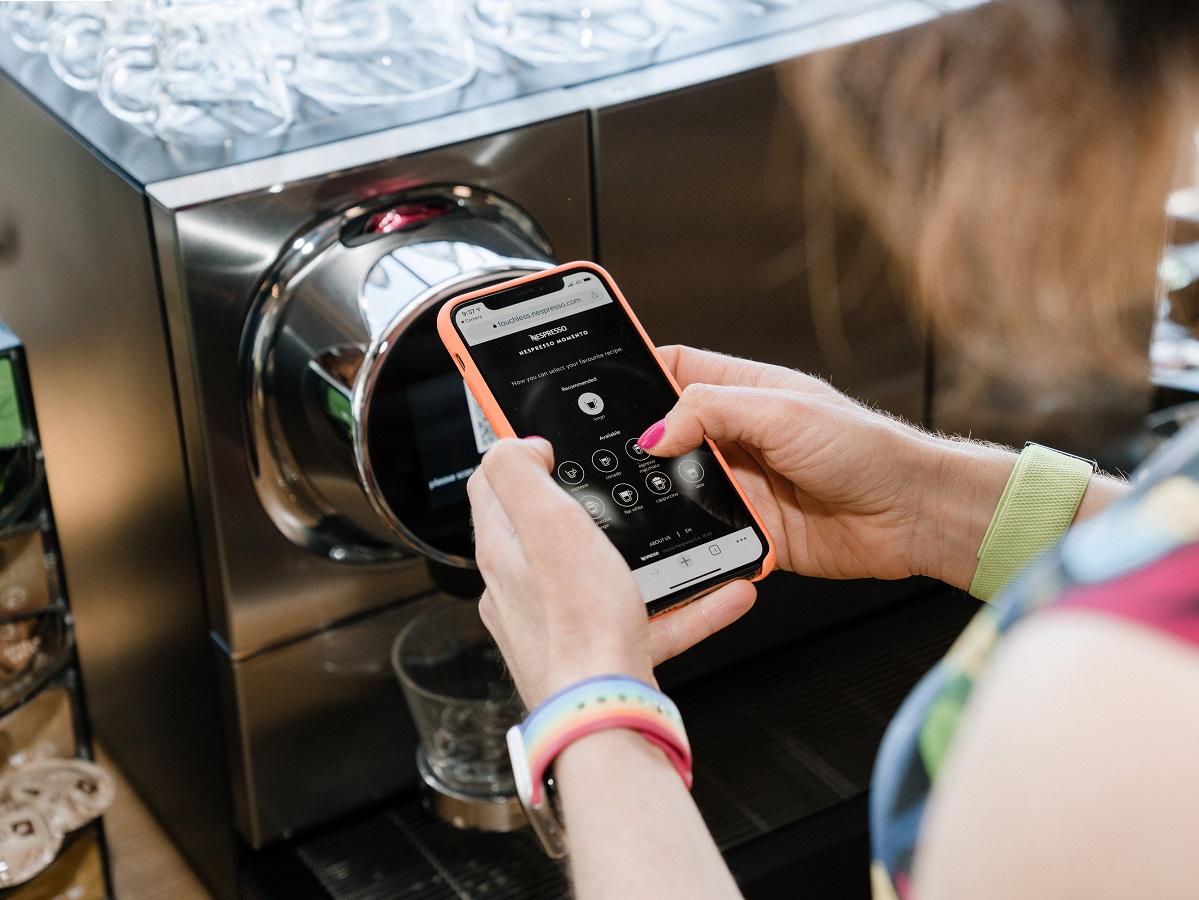Almost all Australian employees (98%) believe cleanliness and hygiene are important in a post-Covid workplace with 8 in 10 wanting to see contact-free work equipment such as printers, and three-quarters (75%) wanting contact-free kitchen appliances such as coffee machines, according to a new whitepaper released by Nespresso Professional.
Key findings from the whitepaper titled The Future of the Workplace 2021 were presented at a Sydney event by a discussion panel featuring Nespresso Oceania general manager, Jean-Marc Dragoli, organisational psychologist, Dr Amantha Imber and Cushman and Wakefield national director, Rob Johnston.
To coincide with the release of the whitepaper, Nespresso Professional presented its new Momento Coffee & Milk machine – the first of its kind designed for commercial spaces including offices and hospitality venues.
Users can simply scan a QR code on the machine’s display to prepare a range of coffees, while the machine reads the coffee capsule and recommends the optimal beverage extraction for the selected choice.
The Future of the Workplace 2021 whitepaper is built around four major pillars – culture, technology, sustainability, and design.
Culture
Almost all employees (98%) surveyed believe wellbeing and mental health is important to their overall health and happiness and almost two-thirds (65%) say a flexible environment helps them feel more at home. Further, 97% of respondents believe team culture is important in a post-Covid workplace.
Workplaces of the future need to recognise that employees returning to the office or engaging in a hybrid work model will be seeking the same, if not better, luxuries and experiences to those they enjoyed while working from home, including beneficial break times and access to tea and coffee.
According to Dr Imber, workplaces need to create three distinct spaces for staff for optimal productivity – enclosed working areas for private, deep focused work; places to work in collaboration and social spaces like the kitchen or corridor for conversation. This is likely to force a level of creativity to re-design and re-purpose existing spaces.
Technology
Technology will play a large role in the local hub concept, ensuring smart systems and ‘plug and play’ functionality make it easier for employees to work across multiple locations if desired.
Dragoli said sending emails, crunching numbers or working on a presentation can be done from anywhere but it is more effective to have direct contact with people if you’re running a workshop or talking about how to engage with consumers. Hours behind a screen can be frustrating and isolating.
Sustainability
Sustainability is more than just a buzzword. Employees expect their employers to take positive steps toward actively engaging in reducing their impact on the environment.
More than 9 in 10 (91%) agree that it’s important to minimise the overall carbon footprint of workplaces. Some sustainable initiatives employees want to see include switching lightbulbs to LED, introducing products made from recycled materials, eliminating single-use plastics and providing collection points for coffee capsules.
Design
Group activities are at the core of the workplace of the future, with employees seeing the opportunity to work directly with colleagues as one of the key reasons to re-enter the workplace. 93% want to spend their time in the office collaborating in small teams.
Flexible spaces such as smaller break-out rooms or former offices can serve dual purposes here, having the potential to service both smaller groups and individuals.
According to Johnston, a return to the workplace creates greater control over work-life balance and helps set clear boundaries between personal and work time. People’s time is monopolised by work with calls and meetings at later hours, intruding into their family time. When in the office, employees can say ‘No, I’m going home before then’.

